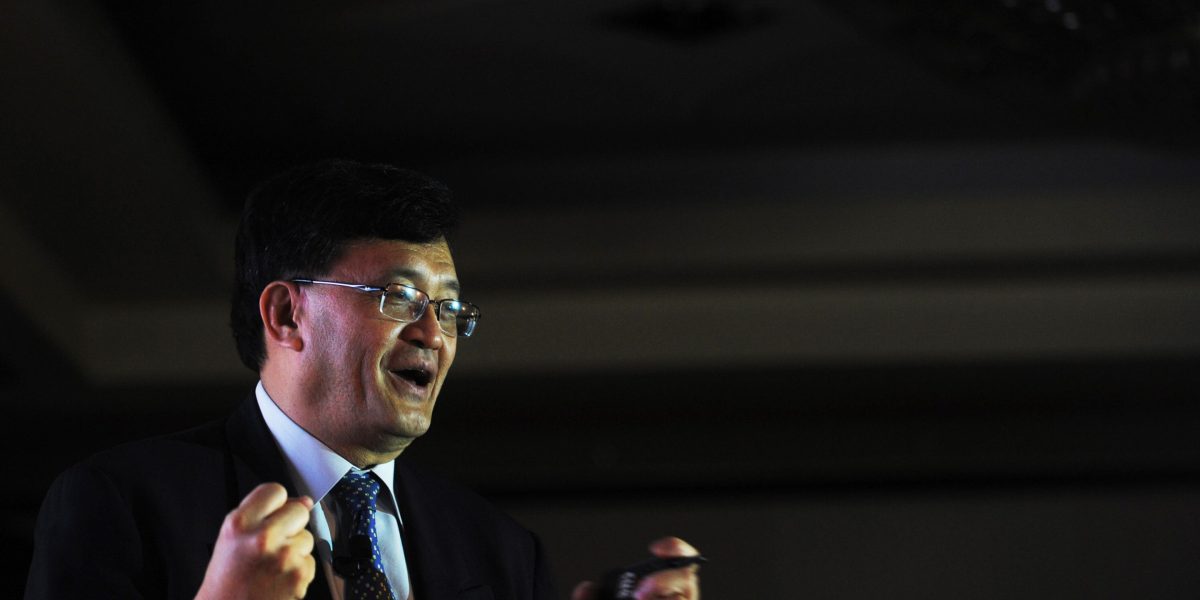
- Silicon Valley veteran and the new Intel CEO Lip-Bu Tan has invested hundreds of millions of dollars into Chinese companies, Reuters reported. Some of the Chinese companies Tan backed have links to the Chinese military. Tan has invested in hundreds of Chinese companies through Walden International and holding companies Seine and Sakaytra.
Intel’s new CEO Lip-Bu Tan invested at least $200 million into Chinese businesses between 2012 and 2024, including at least eight tied to the People’s Liberation Army, according to a Reuters report.
Tan leads a company that has a $3 billion contract with the Department of Defense to manufacture chips, along with two other DoD contracts. His previous investments have raised concerns amid souring U.S.-China relations.
“The simple fact is that Mr. Tan is unqualified to serve as the head of any company competing against China, let alone one with actual intelligence and national security ramifications like Intel and its tremendous legacy connection to all areas of America’s intelligence and the defense ecosystem,” Bastille Ventures partner Andrew King told Reuters.
Intel did not return Fortune’s request for comment. But a spokesperson for Tan told Reuters that he completed a questionnaire that requires disclosure of any potential conflicts of interest.
During the first few months of the Trump administration, President Donald Trump and Chinese President Xi Jinping have exchanged jabs in the form of tariffs: U.S. tariffs on China now stand at 145%, while China’s tariffs on the U.S. are currently 125%.
Intel is the only U.S.-based manufacturer of the most advanced computer chips. And Tan is one of Silicon Valley’s most tenured investors in Chinese tech.
He was also considered a Goldilocks pick to revive the company, and initially cheered by investors when he was named as Intel’s new CEO.
While having Intel helmed by someone investing in Chinese companies might ring alarm bells for some, Elon Musk has his hands in both tech and the government as Tesla CEO and an adviser to President Donald Trump. In fact, Tesla has its largest factory in China, which is responsible for producing half of the company’s cars globally.
“Of course there may be some national-security concerns here, but it does not seem to bother the U.S. that Elon Musk, a key player in the current administration, has a major investment in China,” Santa Clara law school professor Stephen Diamond told Fortune.
For his part, Tan made investments through Walden International, a San Francisco-based venture-capital firm he founded in the 1980s, along with Sakarya Limited and Seine Limited, two holdings companies in Hong Kong.
Between March 2012 and December 2024, Tan injected at $200 million into hundreds of Chinese advanced manufacturing and chips companies, some of which were contractors and suppliers for the People’s Liberation Army, according to Reuters.
Tan also controls more than 40 Chinese companies and funds while holding a minority stake in over 600 others. In many cases, his minority ownership comes alongside stakes held by Chinese government entities, eight of which are tied to Beijing’s military, according to Reuters.
Walden International, meanwhile, is currently a joint owner in 20 investment funds and companies with Chinese government funds or state-owned enterprises, according to Chinese corporate records.
Walden has also jointly invested in six Chinese tech firms alongside Chinese military supplier China Electronics Corporation (CEC). During his first administration, Trump signed an executive order in 2020 that banned any purchasing or investing in “Chinese military companies,” with CEC on the list.
According to another Reuters report, Walden and CEC have a joint 2% stake in surveillance company Intellifusion, which is listed on the U.S. Department of Commerce trade blacklist in 2020 for alleged human rights abuses in Xinjiang.
Walden International did not respond to Fortune’s request for comment. An unnamed source with knowledge of the matter told Reuters that Tan had divested from his positions in entities from China, but the outlet was unable to confirm that claim.
“In this political climate, (China ties) would be something that responsible business leadership at a company like Intel would at least have a serious conversation about how to try and manage,” Diamond told Reuters. “It’s obviously politically sensitive and the board would certainly want to know about it.”
The Department of Commerce’s Entity List bans U.S. firms from exporting sensitive technologies to Chinese companies, but doesn’t block investment.
The Pentagon prohibits companies tied to the Chinese military from the U.S. military supply chain. But unless a company is added to the U.S. Treasury’s Chinese Military-Industrial Complex Companies List, it’s legal for U.S. citizens to hold stakes in Chinese companies, even those that have ties to the Chinese military.
There is no evidence that Tan currently invests directly in companies on the U.S. Treasury’s list, according to Reuters.
“The only point at which a corporate governance issue might rise is if Tan found himself on both sides of a transaction,” Diamond said, “where Intel might be negotiating with a company where he is a director or shareholder.”
This story was originally featured on Fortune.com
Source link

